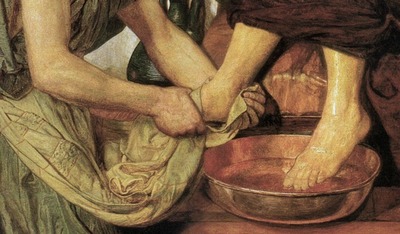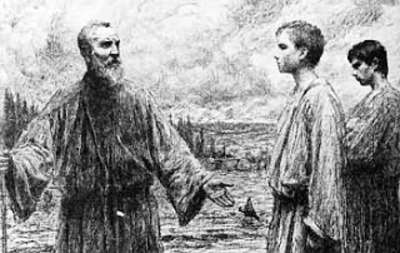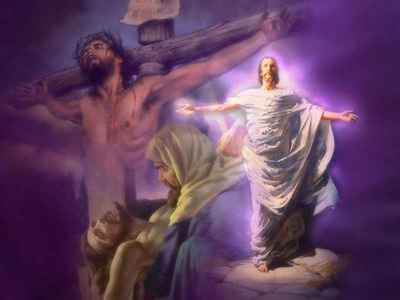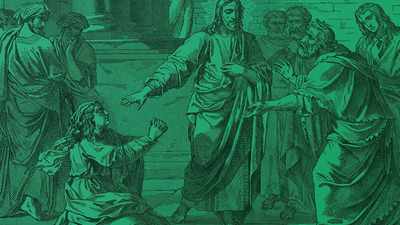October 1, 2023
|by N W
|
0 Comments
|
Discipleship, Evangelization, Father Nixon, Generosity, Grace, Humility, Obedience
Twenty-sixth Sunday in Ordinary Time
October 1, 2023 — Year A
Readings: Ez 18:25-28 / Ps 25 / Phil 2:1-11 / Mt 21:28-32
by Rev. Nixon Negparanon, Pastor
Today’s gospel is a parable about the contrasting attitudes of two sons. The first son said no, but after he came to his senses, he did his father’s wish. The second son said yes, but later, he did nothing. The meaning of this parable is crystal clear: The Jewish leaders are people who said that they would obey God and then did not. The tax collectors and the prostitutes are those who said that they would go their own way and then took God’s way.
There was a minister who was walking down the street, when he came upon a group of about a dozen boys, all of them between ten and twelve years of age. The group surrounded a dog. Concerned lest the boys were hurting the dog, he went over and asked, “What are you doing with that dog?” One of the boys replied, “This dog is just an old neighborhood stray. We all want him, but only one of us can take him home, so we have decided that whichever one of us can tell the biggest lie will get to keep the dog.”
Of course, the reverend was taken aback. “You boys shouldn’t be having a contest telling lies,” he exclaimed. He then launched into a ten-minute sermon against lying, beginning, “Don’t you boys know it is a sin to lie?” and ending with, “Why, when I was your age, I never told a lie.” There was a dead silence for about a minute. Just as the reverend was beginning to think he had gotten through to them, the smallest boy gave a deep sigh and said, “Alright, give him the dog.”
I think, brothers and sisters, we all find ourselves guilty at times of stretching the truth, sometimes innocently at first, but over time this can begin to affect our relationships. For instance, we have all known someone at some point who has a habit of saying one thing but doing another. I think that can be a frustrating experience over time.
The common question for today’s gospel is: Who is better between these two sons: the one who said no, but at the end fulfilled his father’s wish, or the one who said yes, but later did nothing? Maybe our answer would be: the one who said no, but in the end did fulfill his father’s wish.
The key to the correct understanding of this parable is that it is not really praising anyone. We have to admit that neither of these is an acceptable way of conduct. Neither was better than the other, in the sense that the two sons both caused the father pain and sorrow. The one caused pain at the beginning and the other one at the end. Neither of the two was the kind of son to bring full joy to his father. Both could have been better sons by giving a wholehearted Yes, spontaneously and joyfully, and by carrying out the order efficiently, and not the other way around, by which the No of the first son turned into Yes, and the Yes of the second one became a No.
The true Christian should be better than both: What he says, he does. There should be consistency in his words and actions. What he teaches is what he acts.
The readings this Sunday pack a powerful message and tell us very clearly that we have to have a healthy Christian moral life. This healthy Christian moral life is founded on three pillars.
The first pillar is the assurance of grace. Our God who is gracious is a forgiving God. His assurance of grace to us is this: He who has chosen to renounce all his sins shall certainly live (Ez 18:27). This grace is so insistent that by its force many can undo change. In other words, we must develop our friendship with God and follow Christ faithfully.
In one of the chapters of the book, The Purpose Driven Life, which was subtitled, Developing Your Friendship with God, it is said that, like any friendship, we must work at developing our friendship with God. The author gave at least four ways to develop our friendship with God.
First, we must choose to be honest with God. God does not expect us to be perfect, but He does insist on complete honesty. If we look at the Bible, friends of God were not perfect. If perfection were a requirement for friendship with God, we would never be able to be His friend. Fortunately, because of God’s grace, He is still the friend of sinners.
Second, we must choose to obey God in faith. Every time we trust God’s wisdom and do whatever He says, even when we don’t understand it, we deepen our friendship with God. We obey God, not out of duty, fear, or compulsion, but because we love Him and trust that He knows what is best for us.
Third, we must choose to value what God values. This is what friends do. They care about what is important to the other person. The more we become God’s friends, the more we will care about the things He cares about, like the redemption of His people. He wants all His lost children found. Friends of God tell their friends about God.
Fourth, we must desire friendship with God more than anything else. An example of this is David in the Book of Psalms, in which he uses words like “longing,” “yearning,” “thirsting,” “hungering,” etc.
The second pillar of Christian morality is the awesome gift of personal responsibility. This means that to be a person is to be responsible. To be responsible is to do one’s duty. God never excuses us from our duty. It is our duty to be consistent with what we say and do, as proclaimed by Jesus in today’s gospel. As Christians, there should be consistency in our words and actions. What we teach is what we act.
It is like the story of a businessman who was ordering five hundred ball point pens from an office equipment salesman. The latter was writing the order in his notebook, when suddenly the buyer exclaimed, “Hold on, I’m canceling the order.” The salesman left the store wondering why the wholesaler suddenly changed his mind. “Why did you suddenly cancel that order of ball point pens?” asked the surprised bookkeeper. The businessman angrily answered, “Because he talked about ball point pens to me for half an hour, using every convincing argument, and then he wrote out my order with a pencil. His practice did not agree with what he professed.”
In other words, a man’s words must be followed by action. No one likes a person of empty promises. “Seeing is believing” is what an old adage has said.
The third pillar of Christian moral life is self-forgetfulness. Self-forgetfulness is not a false humility. It is rather to consider the other person better than us, so that nobody thinks of his own interests, but the interests of others. Just like what St. Paul says in his letter to the Philippians (Phil 2:3-4) in our second reading: Thinking of other people’s interests first, like the common good of the society, may entail larger considerations.
Neither of the two sons in the parable is a model of obedience, because both were imperfect. The perfect model is Jesus who, in obedience to the will of His Father, emptied Himself, accepting death, death on the cross, as St. Paul reminds us in his letter to the Philippians in the second reading today. It was the unwavering obedience of Jesus to the will of the Father that saved us.
Brothers and sisters, as we obey, we listen to the word He is speaking to us, either audibly or in silence, in a continuous encounter that entails “un-selfing,” just like Jesus emptying Himself.
May Jesus Christ be praised.
KEEP READING
 540-586-8988
540-586-8988 










